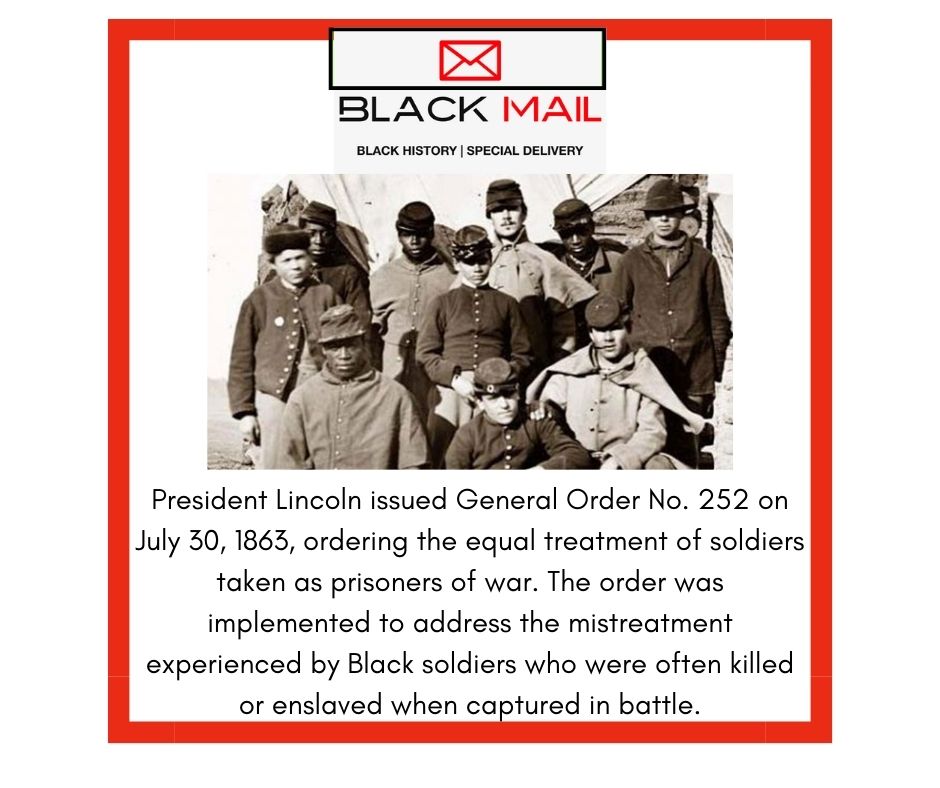Welcome to Black Mail, where we bring you Black History—Special Delivery!
In the midst of the American Civil War, pivotal decisions regarding the enlistment and treatment of black troops reshaped the course of history. While Congress authorized the use of black soldiers in July 1862, it wasn’t until after the Emancipation Proclamation of January 1, 1863, that this policy gained traction. President Lincoln strategically linked these actions, aiming to undermine Confederate morale while bolstering Union military strength with black enlistees.
For black service members, Union military service represented more than just a duty; it was an opportunity to participate in an army of liberation, especially following the Emancipation Proclamation. Conversely, Confederate fears mounted, as they worried that these policies might incite revolts by the enslaved and other anti-slavery allies.
President Lincoln issued General Order No. 252 on July 30, 1863, emphasizing the equal treatment of soldiers irrespective of color and vowing retaliation for any mistreatment of Union soldiers by the Confederacy. Throughout the Civil War, the treatment of prisoners of war was a significant issue to manage. Both the Confederate and Union armies negotiated the exchange of soldiers who were captured during combat. Black soldiers were at great risk for torture, execution, and enslavement when captured. On April 12, 1864, 300 black soldiers and several white officers were executed after surrendering at Fort Pillow in Tennessee. Their surrender should have resulted in them being taken as prisoners of war. Instead, they were executed.
The Confederacy’s refusal to recognize captured black soldiers as legitimate prisoners of war led to a halt in the exchange of prisoners between the Confederacy and the Union. Despite Confederate attempts to negotiate, Union officials remained steadfast in their commitment to equal treatment. Finally, in January 1865, Confederate officials relented, agreeing to exchange all prisoners, including formerly enslaved people.
The evolution of policies regarding black troops in the Civil War marked a turning point in American history, highlighting the struggle for equality and justice on the battlefield. Through perseverance and determination, the Union stood firm in its commitment to ensuring the fair treatment of all soldiers, regardless of race.
Another installment of melanated mail has been delivered. Ponder, reflect, and pass it on.



